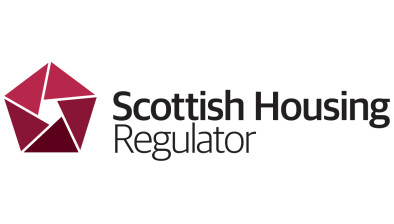Regulator encouraged by RSLs’ self-assurance processes

The Scottish Housing Regulator has today published the findings from its thematic review of how social landlords assure themselves about their compliance with regulatory requirements, and how this helps them to inform their Annual Assurance Statements.
All social landlords are required to submit an Annual Assurance Statement to the Scottish Housing Regulator by the end of October each year about their compliance with regulatory requirements.
The Regulator visited 13 landlords to explore how they assured themselves they complied with regulatory requirements and their approach to preparing the statement. The visits had a particular focus on how landlords assured themselves about meeting their tenant and resident safety duties, and for Registered Social Landlords (RSLs), how the governing body is assured of its approach to financial planning and the assumptions which underpin the RSL’s financial plans.
In the report, the Regulator found most landlords have developed comprehensive and robust self-assurance processes and had appropriate measures in place to ensure the governing body is sufficiently assured regarding the organisation’s financial planning and the assumptions which underpin this.
Making recommendations to RSLs for improvements, the Regulator said:
- Landlords may wish to consider involving any tenant group(s) or organisation(s) in their assurance process.
- Landlords should consider the frequency and level of information being provided to its governing body regarding tenant and resident safety, to provide it with sufficient assurance about compliance with requirements.
- The governing body/committee should ensure it leads and has ownership of the self-assurance process. Landlords can get advice on governing body/committee involvement in the self-assurance process in the SFHA Toolkit and in our advisory guidance ‘Conducting Reviews of Compliance with the Regulatory Standards of Governance and Financial Management’.
- Whilst the majority of landlords submitted their statements by the deadline, landlords should continue to ensure their governing body/committee meeting dates allow for the statements to be considered and submitted on time.
- RSLs should consider how they present financial information to governing bodies, and whether it is clear, accessible, and timely. RSLs may also benefit from providing training, where necessary, for governing body members to ensure they are able to effectively consider and scrutinise financial reports.
- To ensure financial forecasts are based on appropriate and reasonable assumptions and information RSLs should regularly review assumptions and consider whether specialist advice would be appropriate. RSLs should also ensure that appropriate modelling has been undertaken to test a realistic range of scenarios.
Helen Shaw, director of regulation, said: “We wanted to hear from landlords about their self-assurance processes and their experience of producing their statement.
“This year the visits again had a focus on tenant and resident safety and we found this was a key priority for the landlords we visited.
“Our thematic review includes many examples of what landlords told us worked well for them and it sets out a number of recommendations. We encourage all landlords to consider this report as they develop their approaches to self-assurance and prepare their next statement.”
Each year the Regulator considers each landlord’s Statement as part of its annual risk assessment and publishes the outcomes of this in engagement plans around the end of March.






